What Would Make A Slow Cooker Crack? - All Questions Answered
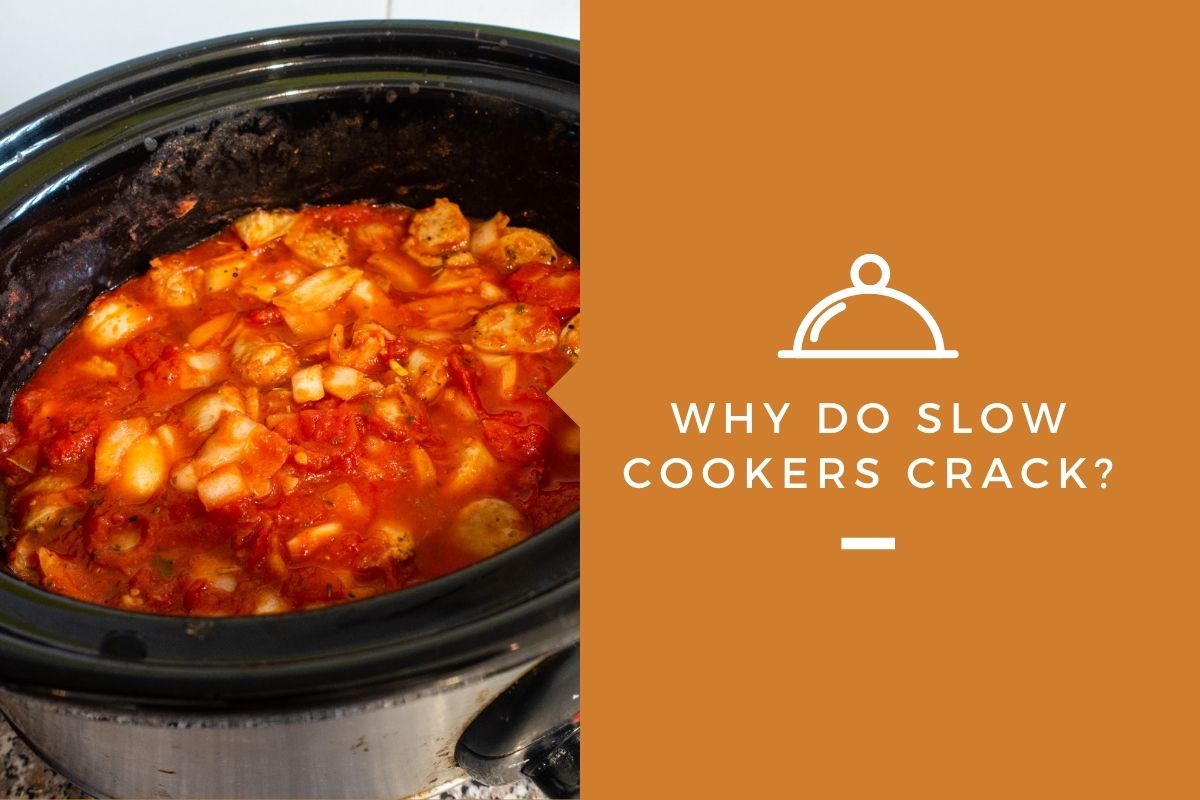
Here’s what I discovered: Slow cookers only shatter in three situations:
1. Rapid temperature changes.
2. Using it on a stovetop burner.
3. Slamming it down too hard on the counter will cause it to break.
But there’s a lot more to learn, so keep reading to learn about some of the most often asked questions.
What are the most common reasons for slow cookers to crack?
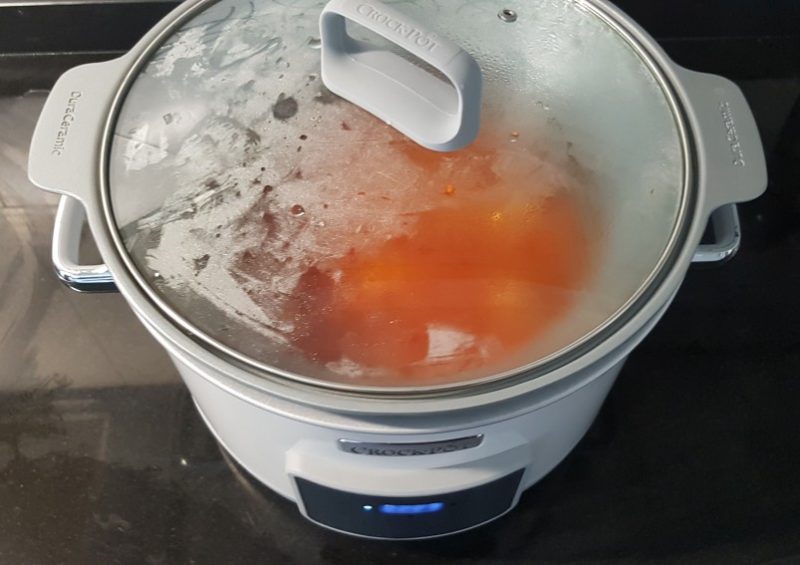
The following are the most common causes of slow cooker failure:
- Temperature swings, such as putting the ceramic insert in the refrigerator overnight and then putting it right in the shell to heat up.
- Using a crock-pot to heat a large, fully frozen item.
- Using cold water to submerge a heated ceramic insert.
- Using it directly on a cooktop burner with the ceramic insert.
- Putting too much pressure on the ceramic insert in the sink or on a counter results in a minor break that will later widen when heated.
However, when you submerge a hot slow cooker in cold water, it is more prone to shatter. It’s tempting, for example, to stick the crock-pot insert right into the sink and fill it with water to soak after we’ve plated the food.
If the water was cold enough, doing so while the ceramic insert was still hot could cause your slow cooker to break.
It’s also possible that slamming the ceramic insert down on a hard surface with too much force will result in cracks. Those fissures may be minuscule in certain situations, but the cracks may break apart the next time the slow cooker is cooked.
According to crock-pot manufacturers, chefs, and experts, you should always fill your slow cooker at least 1/3 full.
You can risk scorching (burning) your food if you don’t have any liquid in your slow cooker. Also, dry it out unless the item already has significant moisture and fat content.
However, if left on for an extended period, it may crack.
Finally, if you have leftovers in the refrigerator and want to reheat them, make sure the ceramic insert from your slow cooker is at room temperature first. Place it on a kitchen surface and leave it there until it no longer feels chilly.
Is it possible to repair a damaged crock-pot or slow cooker?
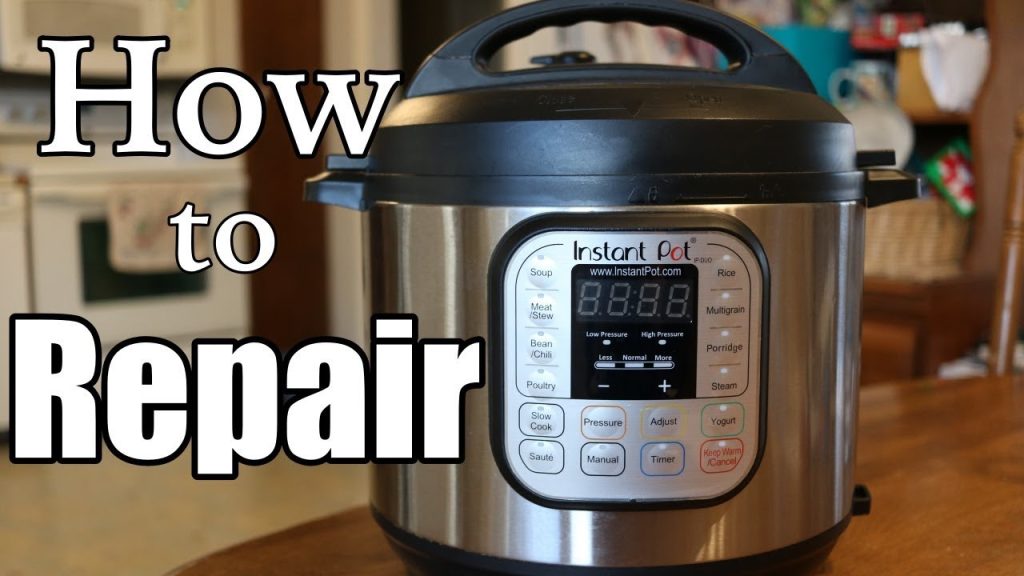
No, a cracked or damaged crock-pot ceramic insert cannot be repaired. You can, however, get a replacement insert if the exterior component is in good condition. However, you may discover that purchasing a new one is not any more expensive.
You might use superglue to repair the crack. Its food safety, on the other hand, would be dubious. Furthermore, the patch may not be able to withstand the heat in the long run.
Plus, with slow cookers being so inexpensive these days, why bother trying to repair a damaged crock-pot?
Is it safe to cook in the slow cooker overnight?
Yes. It’s pretty safe to leave your slow cooker on all night. Slow cookers were made to be left on for extended periods. The majority of crock-pot users are unsure how to utilize their appliances. They also worry if leaving a slow cooker running all night is safe.
Don’t be concerned!
However, leaving them on all night doesn’t rule out the possibility of scorching the bottom of the improper combination of components used. It also doesn’t rule out the possibility of splattering on your counter if you use too much liquid.
However, it’s lovely to leave your slow cooker on all night as a general rule. Just make sure it’s at least 6 inches away from the walls and that it’s not near the sink or other liquids.
I adore my Crock-Pot with a locking lid for splatter protection. THERE WILL BE NO MORE MESSES ON THE COUNTER when I wake up or return home from work.
Is it safe to leave a slow cooker running while you are at work?
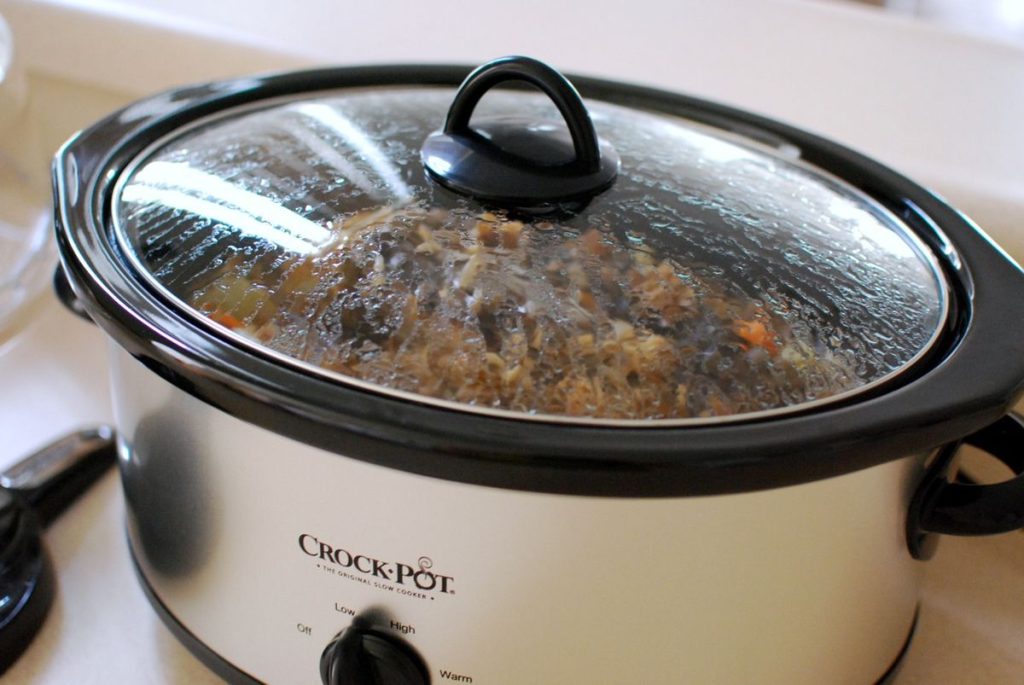
Yes, you can leave your slow cooker on all day while you’re at work or elsewhere. Please set it to low, which is the most common setting for eight or more hours.
Ensure your crock-pot is placed on a heat-resistant surface, such as granite countertops.
Last but not least, make sure the slow cooker is sitting on a completely flat surface. Because tile countertops can be bumpy, you don’t want to risk them tipping over, cracking, or spilling. This is especially true if you have a cat who enjoys jumping on counters.
Some slow cookers have a lid that can be sealed shut to keep the mess at bay.
Do you need more assurance that they’ll be safe?
“Crock-Pot® Slow Cookers are safe for countertop cooking for long periods of time,” according to Crock-Pot’s FAQ page. To avoid overcooking, reduce the cooking time if food is kept warm for an extended period of time.”
Is it possible to keep slow cookers warm for the entire day?
No. Uncooked food, particularly raw meat or seafood, should not be kept warm in a slow cooker all day. Most crock-pots and other brands of slow cookers have a warm setting that is intended to maintain the temperature, not to heat or cook raw food.
So make sure your food is fully cooked before serving, and then leave it warm for the rest of the day.
So, if you’ve been cooking a brisket all night and want to eat it for dinner, you can put it in a warm setting before going to work. Just make sure there’s plenty of sauce in it, and it’ll keep its temperature for the rest of the day.
Is it possible to cook with Pyrex in a slow cooker?
Yes. In the ceramic insert of your slow cooker, you can place a smaller oven-safe Pyrex dish. The Pyrex dish does not require a lid; however, the slow cooker lid must be used.
Stephanie O’Dea, author of the New York Times best-selling slow-cooker cookbook, confirmed it.
Combine all of your ingredients in a small oven-safe glass baking or Pyrex-style container and place it inside the slow cooker.
Is it possible to bake a meal on slow cookers?
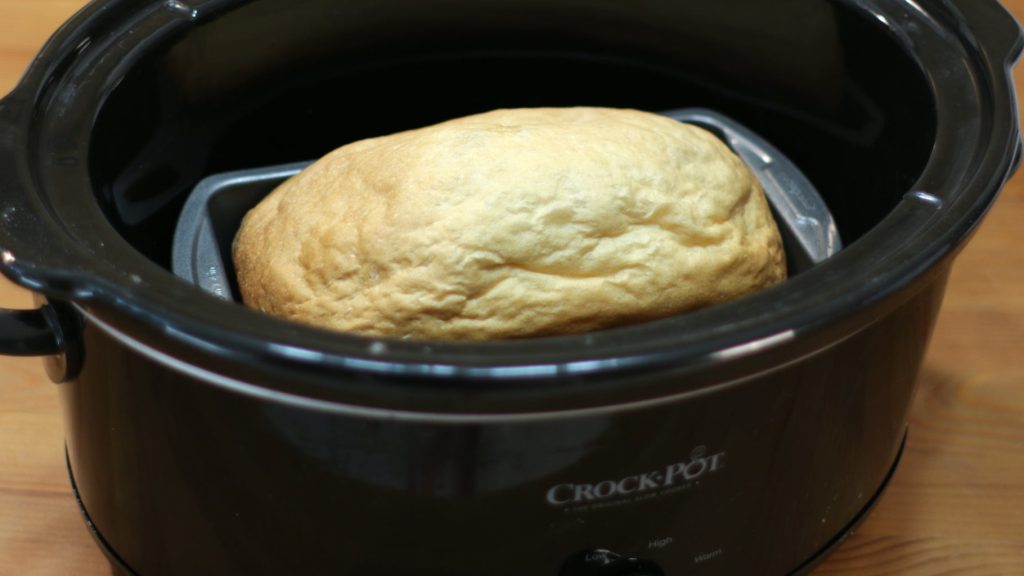
Yes. Almost all slow cooker brands are oven, microwave, and dishwasher safe up to 400 degrees Fahrenheit. However, please do not use them over an open flame or on a stovetop. Another possible cause of slow cooker cracking is heating the slow cooker on the stovetop. However, because there are so many different slow cooker brands, it’s always a good idea to double-check with the manufacturer.
Is it safe to use slow cookers?
No. Slow cookers on the market now are not hazardous. According to a 2004 research, 20% of slow cookers leaked small amounts of lead into the food they cooked. On the other hand, a leaded glaze was widely utilized during the period and is no longer widely employed.
A 2004 investigation by Bill Gebhardt of Salt Lake City’s KUTV raised concerns about slow cookers and toxicity.
As the crock-pots heated up, he started looking into the possibility of lead poisoning from lead leaching into the food. He discovered that roughly 20% of slow cookers leaked minor lead levels into the food they cooked.
When ceramic vessels are heated to 80 degrees, they discharge ten times the amount of lead they do when left unheated. He thought it was worth examining because slow cookers reach temperatures above 250°. When acidic foods are heated, they tend to release more lead.
Of course, nearly all slow cooker brands now say that their products do not contain leaded glaze, even though it has been over 15 years. They also claim that their slow cooker complies with FDA guidelines (which specify that one mcg/mL leach levels are acceptable).
Fortunately, the FDA keeps track of products that have tested positive for lead, and slow cookers are not on that list.
Is it possible for slow cookers to catch fire?
On the other hand, a slow cooker is unlikely to catch fire. At the very least, if the slow cooker is in good working order. However, almost anything that plugs into a wall has the potential to catch fire. So, if the slow cooker’s power cord appears to be worn, cracked, or broken, replace it immediately.
After all, we’re attempting to pull electricity through a line and into a device. The plug, the wire, or the appliance may be all defective. That said, you should be all right if your slow cooker is in good working order, with no broken switches or frayed wires.
Did I answer all of your questions about how slow cookers crack?
We looked at the safety concerns that many crock-pot fans have in this post.
We looked into the truths, lies, and misconceptions regarding slow cookers catching fire, toxicity, and whether or not there is lead in crock-pots that are floating around the internet. However, we also addressed some primary safety concerns, such as whether a slow cooker may be left on while you sleep or go to work.
Finally, we answered the question, “do slow cookers crack?” and looked into exactly what causes them to do so, so you and your family may stay safe while still enjoying these fantastic compact kitchen gadgets!
What’s your favorite recipe to make in the slow cooker?











